As another decade of the Israel-Palestine conflict comes to a close, the idea of a peaceful and just solution for the Palestinians seems further out of reach than ever before.
Much of the past 10 years has been characterized by loss. Loss in the literal sense: of land, of homes, of lives. Paramount, however, seems to be the loss of hope. Loss of hope in local and world leaders, in international accountability, and in the prospect of a two-state solution.
This decade marked the 70th anniversary of the Nakba, 50 years since Israel occupied the West Bank and East Jerusalem, and 10 years of the siege on Gaza. With every anniversary commemorated by Palestinians, the situation only continued to worsen.
Palestinian refugees continue to languish in refugee camps in the occupied territory and across the diaspora. Israel continues to occupy what’s left of Palestinian land, stepping up talks of annexation, and in Gaza, more than 2 million Palestinians will mark 2020 as the year the UN said their home will become “uninhabitable.”
The Netanyahu reign, coupled with Trump’s influence in the US, ushered in a golden era for the Israeli right and settlement enterprise, with unprecedented settlement expansion in the West Bank, and record highs of home demolitions in East Jerusalem.
Looking into the next decade, many things seem uncertain. With the two-state-solution considered by many to be “dead,” what will peace negotiations looks like in the future, especially under a potential two-term Trump presidency? If Netanyahu manages to secure another term as Prime Minister, will annexation turn from just nightmarish election promises, into a chilling reality? Will young Palestinians finally have their voices heard, or will they continue to be suppressed by their corrupted leaders in the Palestinian Authority and Hamas?
While answers to all of these questions remain to be seen, what we can assume, is that things will surely get worse before they get any better.
For now, we take a look back at the past decade, and the moments that shaped history in Palestine and Israel, and will likely continue to shape the future of the region for years to come.
2010
The beginning of the Obama era: a glimmer of hope
The beginning of Barack Obama’s presidency in 2009 marked a shift in attitude amongst Arabs and Muslims across the Middle East and the diaspora, who for the past eight years had suffered war and devastation under the Bush presidency.
In a historic speech in Cairo on June 4, 2009 entitled “A New Beginning,” the president promised to mend relations with the Muslim world, and chose to highlight peace between Israel and Palestine as an important effort to be undertaken by his office.

While he criticized Palestinian resistance movements and reaffirmed America’s “unbreakable” bond with Israel, his calls for Palestinian statehood and an end to settlement expansion were welcomed by Palestinian leaders across factions, and met with cautious optimism by residents of the occupied territory. It was a refreshing departure from decades of American policy and attitudes towards Palestinians, and at the time, something to be hopeful about.
Gaza Freedom Flotilla
May 31, 2010
The international community was shaken after an Israeli commando raid on the Gaza Freedom Flotilla, a group of six civilian ships – three passenger ships and three cargo ships, headed for the Gaza Strip.
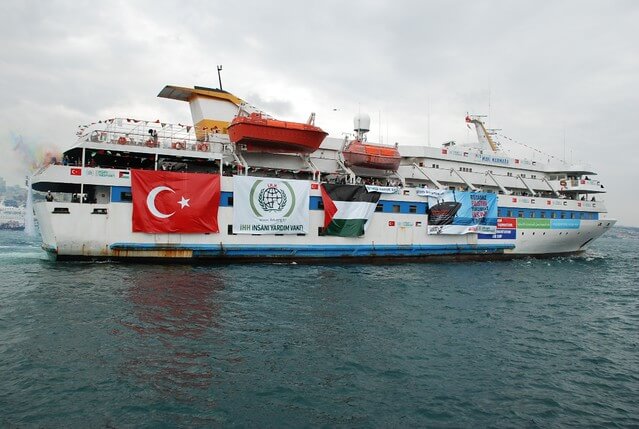
Late at night, naval commandos raided the ships from helicopters and speedboats, and ended up killing 10 activists, mostly Turkish nationals. After forcing the ships to dock at Ashdod port, Israeli detained over 600 more activists, all of whom were eventually deported.
The raid drew widespread condemnation from the international community, and severely strained Turkish-Israel relations. A UN report found that the killing of several of the activists was “consistent with an extra-legal, arbitrary and summary execution,” while a UNHCR probe concluded that Israel’s actions were “disproportionate” and “betrayed an unacceptable level of brutality.” As a result of international pressure after the incident, Israel briefly eased its blockade on Gaza.
Israel ends near year-long settlement freeze
September 26, 2010
In a decision that would help pave the way for a decade of unprecedented settlement expansion in the occupied territory, Israel allowed a 10-month freeze on settlement construction in the West Bank to expire.
The move came in the midst of American led peace talks, which eventually fell apart, though it did not immediately cause either party to depart from negotiations. It immediately gave the greenlight for the construction of over 2,000 new settlement units, and was celebrated by advocates of the settler movement in Israel
2011
Palestine tries, and fails, to be recognized as UN member state
September 16, 2011
President Mahmoud Abbas announced that his government would be filing a formal application for full membership admission to the UN for the State of Palestine, following a year of stalled peace talks and ongoing illegal settlement expansion.
Then President Obama said he would veto the application — a move that the US narrowly avoided having to make, after Palestine failed to garner nine of the required votes from the admissions committee they needed to win approval.
Palestine wins seat in UNESCO
October 31, 2011
After a failed attempt at UN membership, Palestine celebrated a victory after winning a seat at the UN Educational, Scientific and Cultural Organization (UNESCO). The move was celebrated by Palestinian activists, who had been pushing for membership in the agency with the hopes that granting UNESCO World Heritage Site status to historic places throughout the territory could help shield certain areas from Israeli settlement expansion and land confiscation.
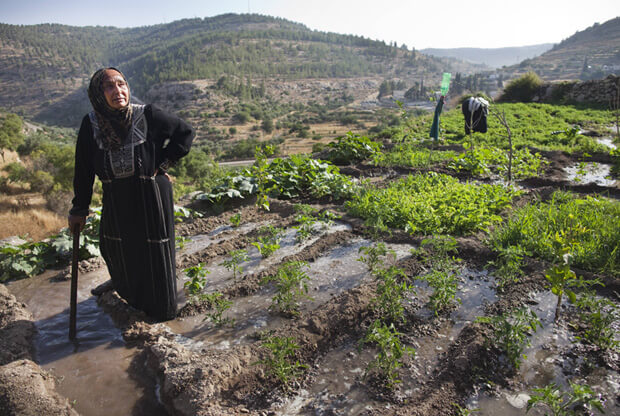
The move was met with fierce opposition by Israel and the United States, the latter of which halted its funding to the UN agency immediately after the decision, in accordance with a 1990 US law that prohibits the appropriation of funds for any UN agency that “accords the Palestine Liberation Organization the same standing as a member state.”
2012
Israeli Civil Administration covertly set aside West Bank land for settlement expansion
March 30, 2012
Following a freedom of information request from an anti-settlement activist, it was revealed that the Israeli Civil Administration had been covertly allocating portions of West Bank land — some 10% of the entire territory — for future settlement expansion. Haaretz reported at the time that the maps named several settlements that did not exist yet at the time of publication.
Operation “Pillar of Defense” devastates Gaza
November 14 – 21, 2012
Following days of cross-border tensions, Israeli forces assassinated Ahmed Jabari, chief of the military wing of Hamas, in an airstrike. Over the course of the following week, Israeli forces claimed to have struck 1,500 “militant” targets across the Gaza Strip. 174 Palestinians were killed, the majority of them (over 100) civilians, while hundreds more were injured. Six Israelis, including four civilians, were killed, while over 200 were reported to have been injured.

In the aftermath of the offensive, the second in four years, Israel was accused of committing several war crimes. In one airstrike on a residential building, 10 members of the al-Dalu family were killed. “In many cases, B’Tselem has found that Palestinians who did not take part in the hostilities were killed and injured without having been given any prior warning that could have enabled them to take shelter,” B’tselem said at the time.
UNGA resolution upgrading Palestine to non-member observer state status
November 29, 2012
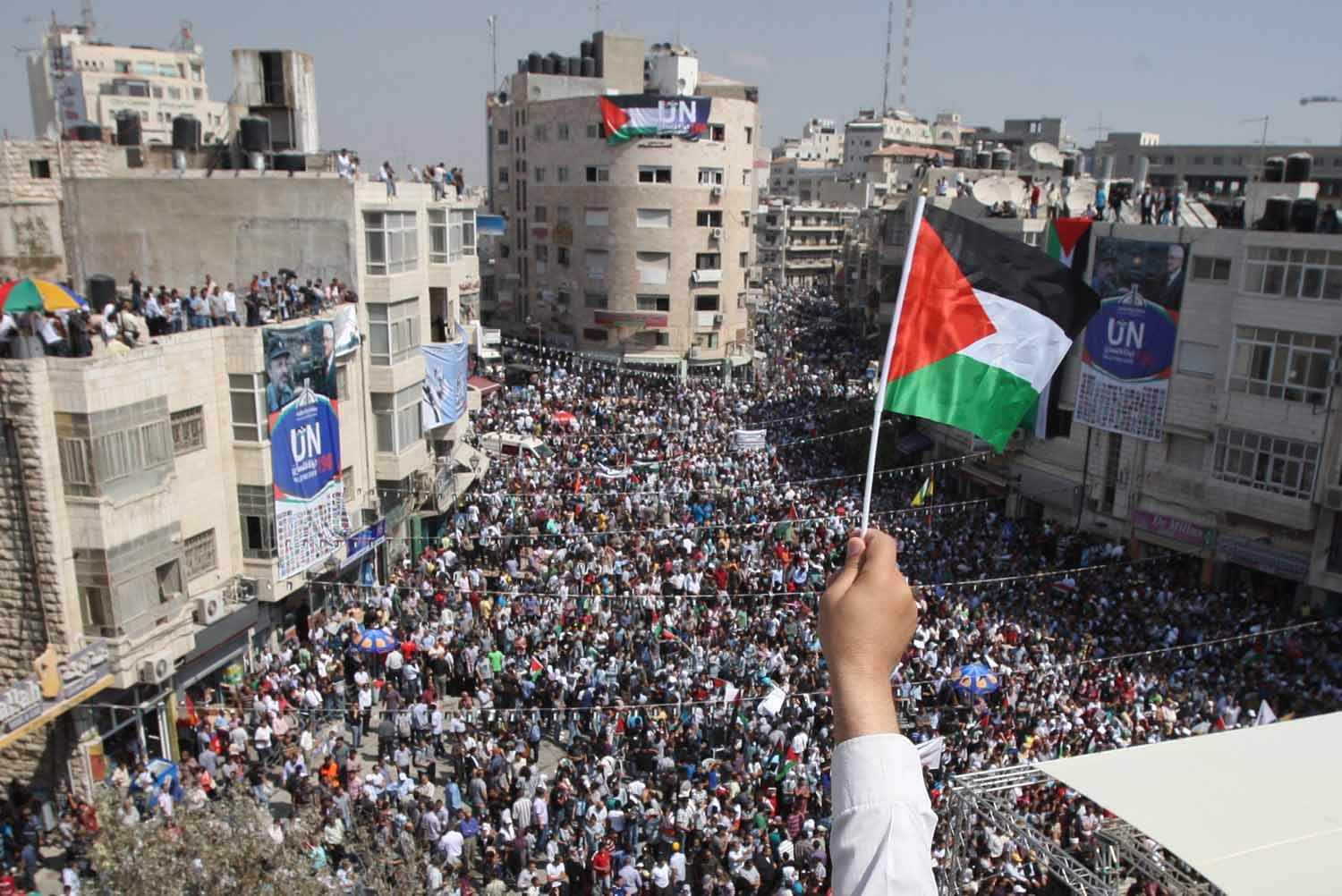
After an unsuccessful bid the year before to become a full member state, Palestinians celebrated a win after the UN General Assembly overwhelmingly voted in favor of resolution 67/19 to upgrade Palestine to non-member observer state status. The largely symbolic role allowed for Palestine to participate in General Assembly debates, and would pave the way for Palestine becoming a member of the International Criminal Court (ICC).
In response, Israel approves settlement construction in E1
November 30, 2012
One day after Palestine’s status at the UN was upgraded, Israel responded by approving preliminary zoning and construction plans for settlements in the E1 area of the West Bank. The punitive measure was widely condemned by the international community, including the American administration, who considered it a major setback for the two-state solution.
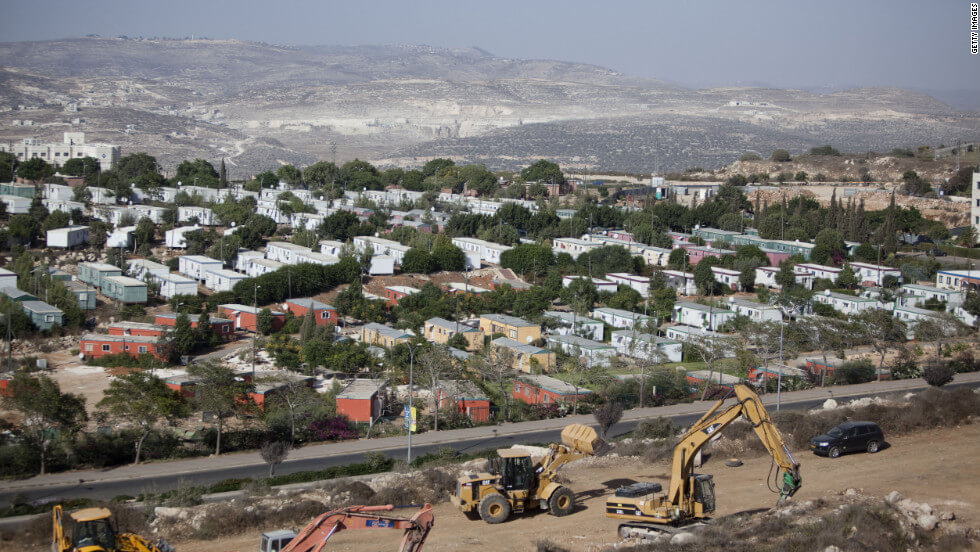
The 2012 decision would pave the way for years of settlement construction in the area, which if completed, would completely cut off the northern West Bank from the southern part of the territory, making the viability of a future contiguous Palestinian state in the area impossible. By the end of the decade, the E1 area would become a flashpoint of the Palestinian struggle against settlement expansion in the West Bank.
2013
John Kerry begins US-led peace talks
August, 2013
For the first time in nearly three years, Israeli and Palestinian leaders met face to face for direct peace negotiations, under the auspices of then Secretary of State John Kerry. The talks began under concessions agreed to by both parties: Palestine agreed to halt seeking international recognition as a state by applying to international organizations, and Israel agreed to the release of 104 Palestinian prisoners who were imprisoned before the 1993 Oslo Accords.
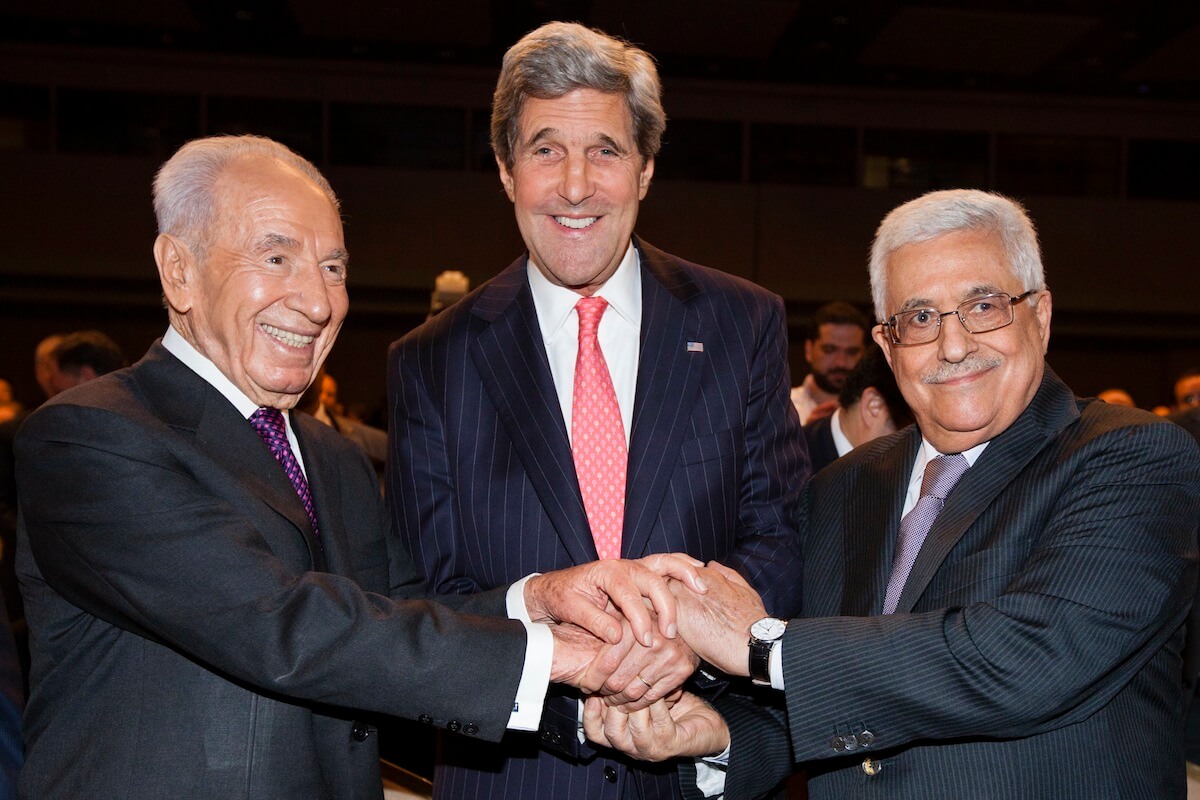
The talks showed signs of weakness early on, with the parties unable to even agree on what issues should be addressed and given priority during negotiations. Less than a year later, the negotiations fell apart. It was reported at the time that American officials put much of the blame on the Israeli side for its continued settlement expansion throughout the negotiations. Peace Now reported that during the nine months of peace talks, Israel set a new record for settlement expansion with nearly 14,000 newly approved settler homes.
Pre-Oslo prisoners released from Israeli jails
August – December, 2013
As part of the peace talks, Israel agreed to release 104 Palestinian prisoners — the same prisoners the state promised, and failed, to release in 1999 under the Sharm el-Sheikh Memorandum. The prisoners were set to be released in four phases, the first of which took place on August 13, the first day of negotiations. Twenty-six prisoners, all who had been serving long-term sentences since before the Oslo Accords, were released to a heroes welcome in the West Bank and Gaza Strip.

After months of shaky negotiations, the second phase of 26 prisoners were released on October 29 , and the third set of prisoners on December 30th. While President Abbas and Palestinians across the territory hailed the releases as a huge victory, many expressed concerns that Israel, as it commonly does, would quietly rearrest the prisoners over the years. On March 28, 2014, Israel failed to release the fourth batch of 26 prisoners, which marked the beginning of the end of the peace talks.
2014
Operation Brother’s Keeper turns West Bank upside down
June 12 – June 30, 2014

On June 12, three Israeli teenagers were kidnapped while hitchhiking near the Gush Etzion junction in the Hebron district of the West Bank. The kidnapping sparked a two-week long manhunt for the teenagers across the occupied territory, which ended up becoming the largest Israeli operation in the West Bank since the Second Intifada. In what many criticized as more of an effort to squash Hamas’ operations in the West Bank than finding the teens, Israel killed five Palestinians, including a 14-year-old boy, raided over 1,000 Palestinian homes, offices, and schools, and arrested hundreds of Palestinians en masse. By the time the teens were found, killed and buried in a field in Hebron, the story had captivated the nation and the international community, and was attributed as the starting point of a violent rest of the year in the region.
Kidnapping and murder of Muhammed Abu Khdeir
July 2, 2014
Days after Israel ended its manhunt in the West Bank, Palestinians were shaken to their core when they woke up to news that a 16-year-old Palestinian boy from East Jerusalem had been kidnapped by a group of young Israelis. A few hours later, his charred body was found dumped near a Jerusalem forest. Initial autopsy results showed that the teen, Mohammed Abu Khdeir, was burned alive.
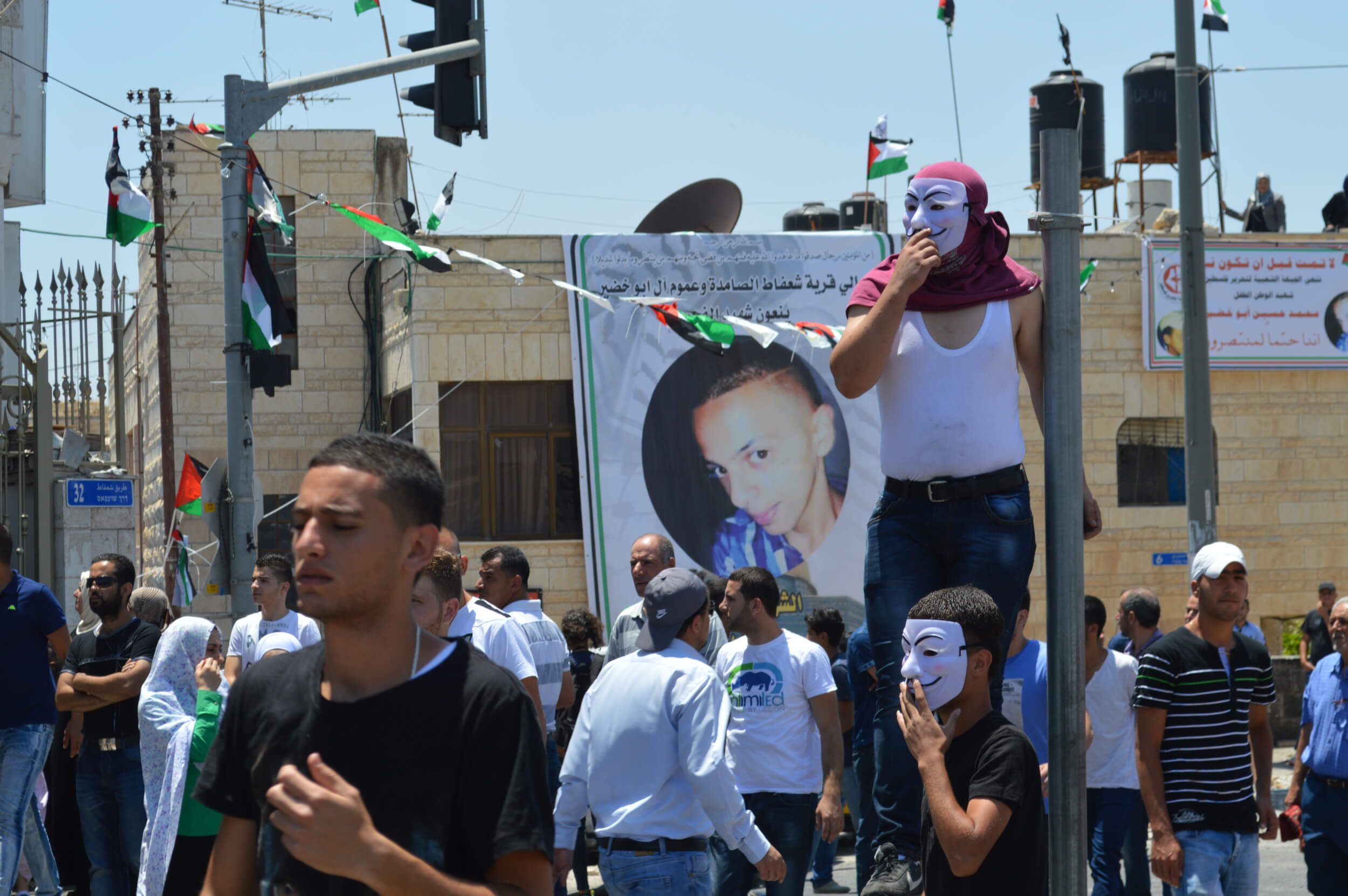
The killing prompted a number of reported attempted kidnappings of Palestinians by Israelis, and price tag attacks across the West Bank. Palestinains staged numerous protests across the territory that were suppressed by Israeli forces. Famously, a few days after the killing, a video went viral showing undercover Israeli officers violently beating up Khdeir’s cousin, 15-year-old American citizen Tariq Khdeir, as he was handcuffed and pinned to the ground. Photos of Khdeir’s swollen, black and blue face were plastered across international and American media, and drew widespread condemnation from the international community.

Operation Protective Edge in Gaza
July 8 – August 26, 2014
After weeks of tensions across Israel and Palestine following the killings of the three Israeli teens and Abu Khdeir, and days of intensifying cross-border rocket fire between Israel and Gaza, Israel launched “Operation Protective Edge,” which would prove to be the deadliest and most destructive of its three offensives on Gaza in seven years. Intense airstrikes, alleged to be targeting Hamas militant areas, and a subsequent ground invasion lasted a grueling 50 days. The offensive captured the attention of the international community, as stories of entire residential buildings being leveled to the ground, taking entire families with them, spread across the media. Stories of boys being killed while playing football on the beach and of UN schools being bombed sparked an intense backlash against Israel for its actions in the strip.
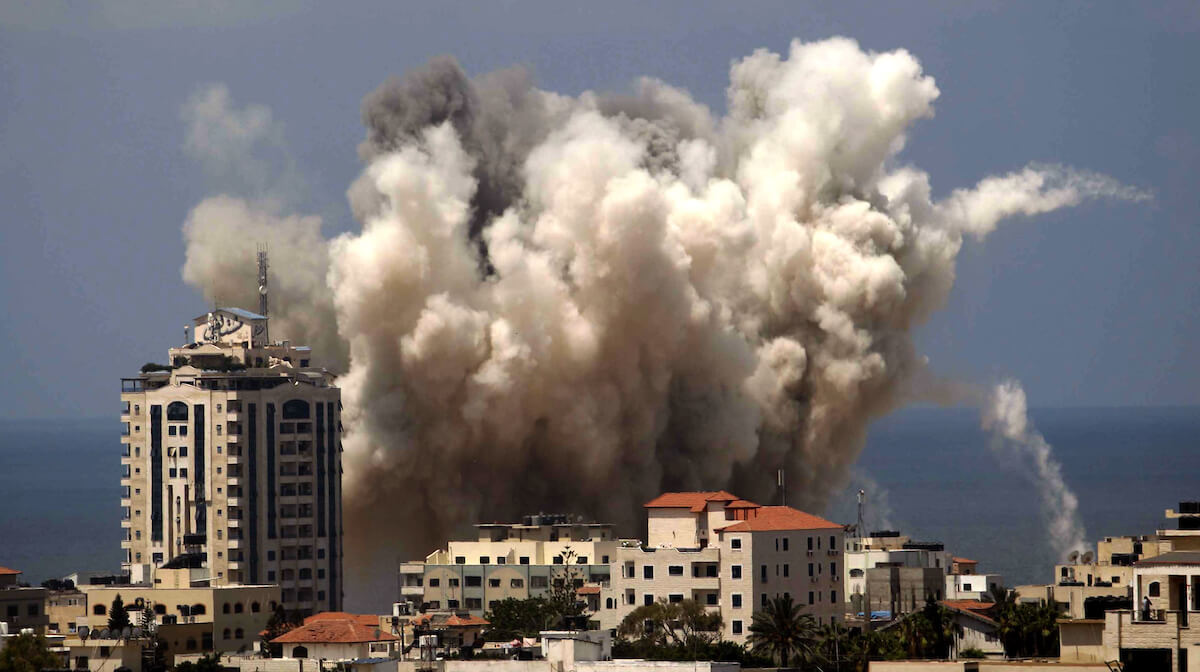
According to UN documentation, the operation claimed the lives of 2,251 Palestinians, including at least 1,462 civilians, 551 of them children. More than 11,000 other Gazans were injured, nearly a quarter of them children. An estimated 1,500 children became orphans, and 142 Palestinian families had three or more members killed in the same incident, for a total of 742 fatalities. Additionally, 18,000 housing units were destroyed in whole or part leaving more than 100,000 Gazans homeless. According to a 2019 report from B’Tselem, four and-a-half years after the war, 20% of the homes are still unusable and some 2,300 families – about 13,000 people – remain homeless.
2015
Dawabsheh family murders
July 31, 2015

Violent settler attacks on Palestinians are not an uncommon occurrence in the West Bank. But when a group of masked settlers firebombed the Dawabsheh family home in the village of Duma in 2015, Palestinians across the territory were terrified. The fire killed 18-month-old Ali Dawabsheh and both of his parents. Four-year-old Ahmed Dawabsheh was the only survivor, and suffered severe burns across more than 80% of his body. While the Israeli media and government attempted to portray the attack as the act of a few “lone wolves” and “Jewish extremists,” Palestinains argued that it was not a one-off incident, and rather represented the true face of the settler movement in the West Bank. The attack sparked widespread protests among Palestinians, and came to be a defining moment of the decade in terms of settler violence in the occupied territory.
The “Third Intifada” begins
September 13, 2015 – 2016
On the eve of Rosh Hashanah, dozens of Israelis entered the Al-Aqsa compound in East Jerusalem under the protection of armed Israeli authorities. The presence of the Israeli worshipers prompted protests among Palestinians at the site, which were violently suppressed by Israeli forces. Videos of Israeli forces firing stun grenades and tear gas into the Al-Aqsa Mosque sparked a number of protests around the city. That same night, an Israeli man was killed after reportedly coming under attack from a group of Palestinian stone throwers and losing control of his car. Over the coming days, clashes continued at the Al-Aqsa compound and across Jerusalem and the West Bank. Political pundits across the globe, as well as Israeli and Palestinian leaders, began to label the surge in protests the “Third Intifada.”

On September 22, Israeli forces shot and killed and 18-year-old Palestinian girl, Hadeel Hashamoun, as she passed through a checkpoint in Hebron, allegedly armed with a knife. It was later found that she posed no imminent threat to the lives of the soldiers, who could have apprehended her through nonviolent means. Her killing is what Palestinians attribute the beginning of the subsequent wave of stabbings that took over the occupied territory.
In the ensuing weeks and months, the violence would be characterized by a number of small-scale stabbing attacks carried out by “lone-wolves” predominantly against uniformed Israeli officers. While Israel perpetuated the narrative that the violence was sparked by Palestinian incitement against Israelis on social media, Palestinians pointed to the more than 50-year-long occupation and lack of progress on a just solution to the conflict as the reason for the outburst.
2016
Elor Azaria executes incapacitated Palestinian
March 14, 2016

As the so-called “Third Intifada” continued to proliferate into 2016, one case would come to define the violence, and what many rights groups criticized as Israel’s excessive use of force against Palestinians. Israeli forces shot Abdel Fattah al-Sharif in the Tel Rumeida neighborhood of Hebron as he attempted to stab a group of soldiers stationed in the area. As al-Sharif lay bloodied and incapacitated on the ground, Israeli medic-soldier Elor Azaria cocked his gun and shot al-Sharif in the head, killing him. The killing, which was recorded by local Palestinian activist Imad Abu Shamsiyyeh, sparked anger amongst Palestinians and rights groups who deemed it an “extrajudicial execution.” After a widely covered trial, Azaria was sentenced to 18 months in prison and 12 months probation. He was released after serving 9 months in prison to a hero’s welcome in Israel. To this day, Abu Shamsiyyeh continues to be harassed by settlers in Hebron for exposing Azaria’s crimes.
2017
Trump announces Jerusalem as the capital of Israel
December 6, 2017
In perhaps the most defining moment of the latter half of the decade, President Donald Trump announced that the U.S. would be recognizing Jerusalem as the capital of Israel. The occupied city, which Palestinians say must be the capital of their future state, has been a sticking point in peace negotiations for years, amid Israeli attempts to further exert its control over the city.

The decision sparked widespread protests that lead to the arrest of hundreds of Palestinians and the injury of many more. Years later, “Jerusalem is the capital of Palestine” is still a slogan featured at nearly every political protest across the territory. The decision was welcomed by Israel with open arms, and severely damaged the Palestinian Authority’s relationship with the U.S. administration.
Ahed Tamimi arrested for slapping Israeli soldier
December 19, 2017

Ahed Tamimi was propelled onto the international stage after she was arrested by Israeli forces from her home in the middle of the night, over an incident in which she she slapped an Israeli soldier in the face during a raid on her hometown of Nabi Saleh. Tamimi, who has been locally famous in Palestine since she was a young girl for her role in the weekly Nabi Saleh protests, held the attention of the international and local media throughout her eight-month sentence in Israeli prison. Her case helped shed a new light on the issue of Palestinian child prisoners and the struggles of Palestinian youth under occupation. By the time she was released, she had reached star status in Palestine and beyond, and has remained outspoken in her criticism of the Israeli occupation, travelling the world raising awareness about the Palestinian cause.
2018
Great March of Return begins in Gaza
March 30 – present
When Ahmed Abu Artema thought up the idea of a “Great March of Return” in his besieged home of the Gaza Strip, little did he know he would be birthing one of the largest Palestinian popular movements in decades. What was originally supposed to last a few Fridays beginning on Land Day in 2018, has continued weekly ever since, with Gazans taking to the border to demand the right of return for refugees to their homelands, and an end to the 12-year siege that has debilitated the small coastal enclave.

The protests have been violently suppressed by Israeli forces, who have killed hundreds of protesters and injured thousands more, causing many to be left with lifelong disabilities. According to UN documentation, as of March 2019, Israel had killed 195 Palestinians, including 41 children, and injured nearly 29,000 people (including over 7,000 wounded with live ammunition) during the protests.
Nation State Law solidifies Palestinian status as second-class citizens in Israel
July 19, 2018
Passed by Israel’s Knesset, the law officially declared Israel as the nation state of the Jewish people and, among other things, made Hebrew the singular national language, and demoted Arabic to “special status.” The move was applauded by Israel’s right-wing government, which praised it as finally affirming the “Jewish character” of Israel. The legislation was widely criticized by the local Palestinian community, who said the law turned turned Israel’s nearly 2 million non-Jewish citizens — both Palestinians and other minorities — into second-class citizens, by prioritizing Israel as a Jewish state over a democratic one.
The battle for Khan al-Ahmar reaches new heights
May 2018 – present

For years, the Bedouin community of Khan al-Ahmar has been embattled in a legal dispute with the Israeli government, which seeks to forcibly relocate the community from their village in the central West Bank, in order to make way for settlement expansion in the ‘E1’ area. In May 2018, ignoring the pleas of European governments and senior US politicians, the Israeli Supreme Court gave the final greenlight for the demolition of Khan al-Ahmar. In the following months, the village’s cause continued to grain traction among Palestinian, Israeli, and international activists, who spent weeks on end peacefully protesting against the demolition of the village, often met with violent suppression by Israeli forces. After immense pressure from the international community, the Israeli government has temporarily put its plans on hold, but could resume demolition procedures at any moment.
25th anniversary of the Oslo Accords
In September 1993 the world celebrated what it thought was the beginning of the end of the Israeli-Palestinian conflict with the signing of the Oslo Accords, which were supposed to lead to a “comprehensive peace agreement” by 1999, and eventually, a Palestinian state, with the newly-founded Palestinian Authority (PA) serving as an interim self-government. Twenty-five years after the Oslo Accords, Israel has only extended its rule further into the occupied territory, and the PA developed into a despotic regime, focused more on quashing dissent and policing free speech than achieving liberation and statehood.
Rashida Tlaib first Palestinian woman elected to Congress
November 7, 2018
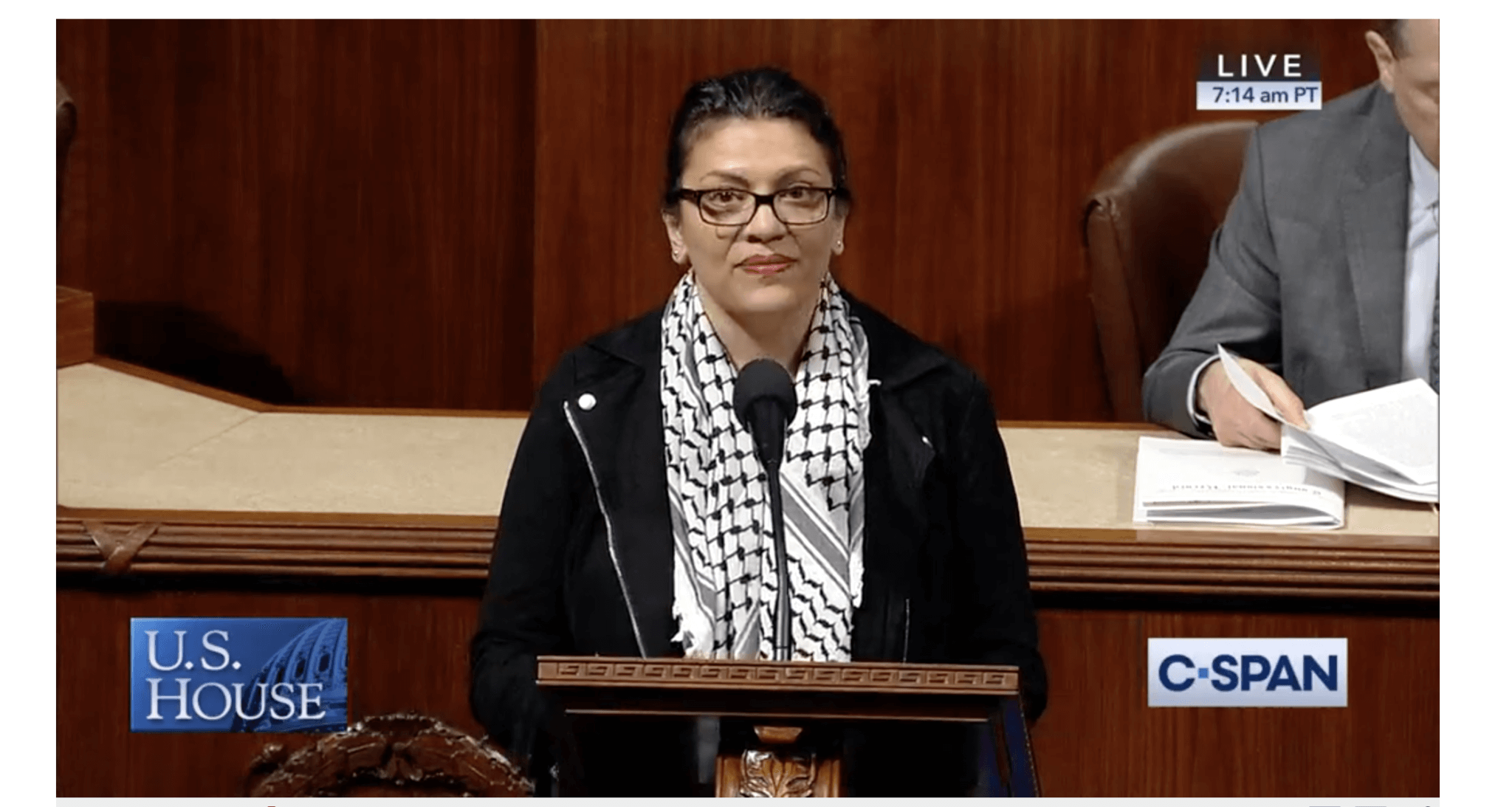
Democrat Rashida Tlaib of Michigan’s 13th Congressional District made headlines across the U.S. and the world when she became the first ever Palestinian-American woman to be elected to congress. Since her election, Tlaib has been outspoken in her defense of the BDS movement and her criticism of Israel’s occupation of the West Bank.
Trump’s vendetta against the Palestinians
2017-present
Over the course of his presidency, the Trump administration has relentlessly unleashed a series of political decisions aimed at harming the Palestinian people and forcing their leadership to the negotiating table. In 2018 alone, Trump defunded UNRWA and USAID in the West Bank and Gaza, and moved the US Embassy from Tel Aviv to Jerusalem, breaking with decades of US foreign policy in the region. Not only have Trump’s decisions severely damaged the diplomatic relations between the U.S. and Palestinian leadership, but have endangered the lives of millions of the most vulnerable Palestinians who rely on U.S. and international aid for some of their most basic needs.
Trump shuts down PLO office
September 2018

After 24 years in Washington, the Palestinian Liberation Organization’s (PLO) diplomatic mission in DC was closed following instructions from the Trump administration to shut down their operations in the U.S. The State Department told the PLO that the Palestinian leadership’s efforts to sanction Israel at the ICC was in violation of an obscure U.S law. Hours after the decision, US Secretary of State Mike Pompeo announced the US would be halting $165 million in funding to the to Palestinian government. The move further soured relations between the U.S. administration and Palestinian leadership, who had been boycotting official diplomatic relations with the U.S. ever since Trump’s decision to recognize Jerusalem as the capital of Israel.
2019
Israeli elections: third time’s a charm
April 2019 – Present

This year kicked off with a heated bid for reelection from Israeli Prime Minister Benjamin Netanyahu, who at the time was facing impending charges of bribery and corruption that was clouding his premiership. The first round of elections in April ended in a draw between Netanyahu and his opponent, former Israeli military chief Benny Gantz, and sent Israel into an unprecedented second election within a year. The campaign was rampant with anti-Arab sentiment, with rights groups and activists accusing Netanyahu and his right-wing supporters of race-baiting in order to win the elections. Despite Netanyahu and Gantz’s best efforts, neither leader could form a governing coalition the second time around following the September elections, and threw Israel once again into a third election cycle, to be held in March 2020.
‘Deal of the Century’ debuts in Bahrain
June 26, 2019
The widely-anticipated and hotly-contested “economic workshop” for Israeli-Palestinian peace in Bahrain featured the first unveiling of Jared Kushner’s plans for Palestinians, and Trump’s elusive “Deal of the Century.” While Kushner proposed investing upwards of $50 billion in the Palestinian territories and neighboring Arab states over the course of 10 years, the creation of more than 1 million Palestinian jobs, and slashing the unemployment rates in Gaza and the West Bank, the perceived lack of understanding of the nuances of the conflict and the need for political solutions led to a timid reception from those in attendance.

In addition to the fact that the Palestinians boycotted the conference altogether, many countries who did participate sent delegations of relatively low-level ministers and officials, indicating the general air of uncertainty towards the proposal. By the end of the conference, not much had been achieved in terms of solid commitment by Arab and international leaders to investing in Kushner’s plan, and those present, including Israeli officials made it clear that it would be difficult to commit to Kushner’s economic proposals so long as his political plans remained a secret.
Israel angers US after banning congresswomen from entering the country
August 15, 2019
Israeli Prime Minister Benjamin Netanyahu caused a stir in the US government after banning congresswoman Rashida Tlaib and Ilhan Omar from entering the country on an official delegation, over their support for the BDS movement.
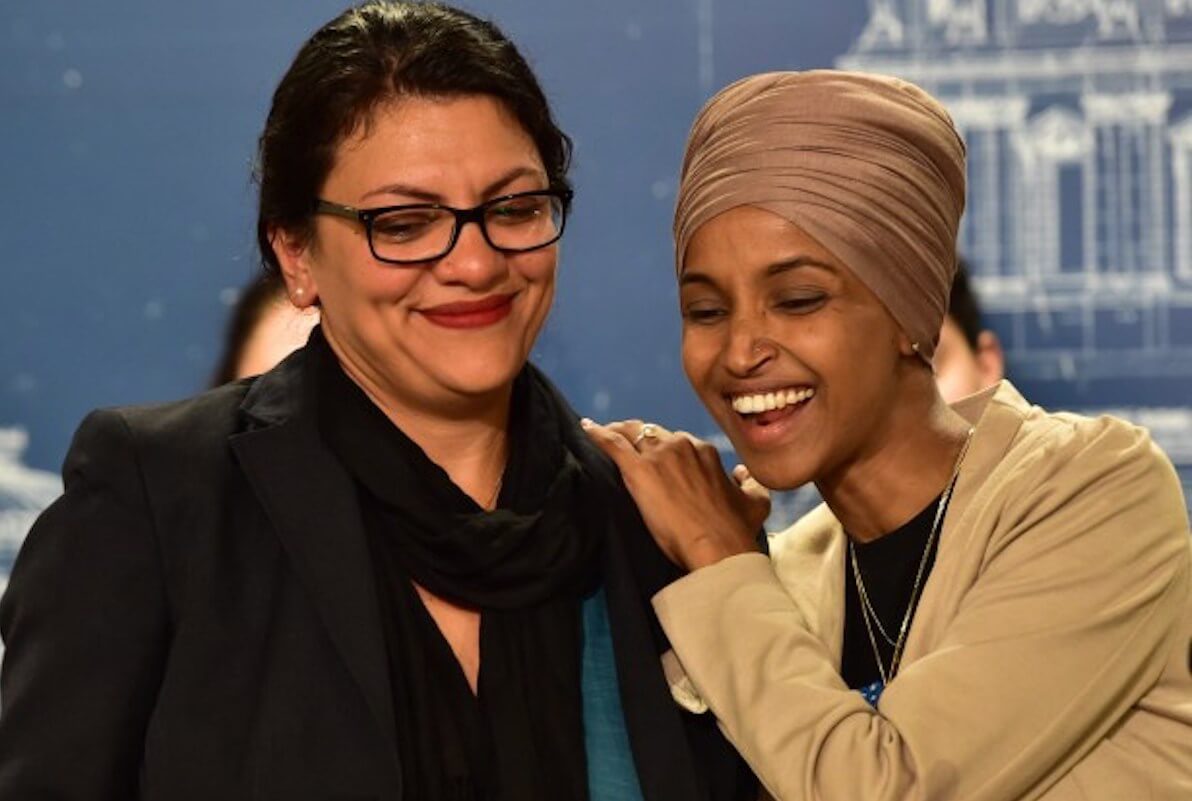
The move seemed to backfire on Netanyahu, drawing criticism from US politicians on both sides of the aisle, and major presidential candidates, Palestinian leaders and activists, celebrities like John Legend, Barbara Streisand, and Cynthia Nixon, and even Zionist organizations like AIPAC, all voiced their opposition to the decision — particularly the role played by Trump in influencing a foreign government and ally to ban U.S. lawmakers from entering their country. Following the ban, the hashtag “#BoycottIsrael” was trending on Twitter in the U.S. for a few hours, and was hailed by pro-Palestine activists as a major win for the boycott movement.
Netanyahu vows to annex Jordan Valley
September 10, 2019
A week before Israel’s second round of elections, Prime Minister Netanyahu announced that if reelected, he would annex all Israeli settlements, the Jordan Valley, and the northern Dead Sea area of the occupied West Bank. He vowed to “extend sovereignty” to all Israeli settlements in the occupied West Bank, effectively annexing swaths of land where more than 190 settlements have been built in contravention of international law. Netanyahu also said the Deal of the Century would create a “historic opportunity” for annexation of the West Bank.
Wave of feminist protests sparked after of honor killings in West Bank
September 2019
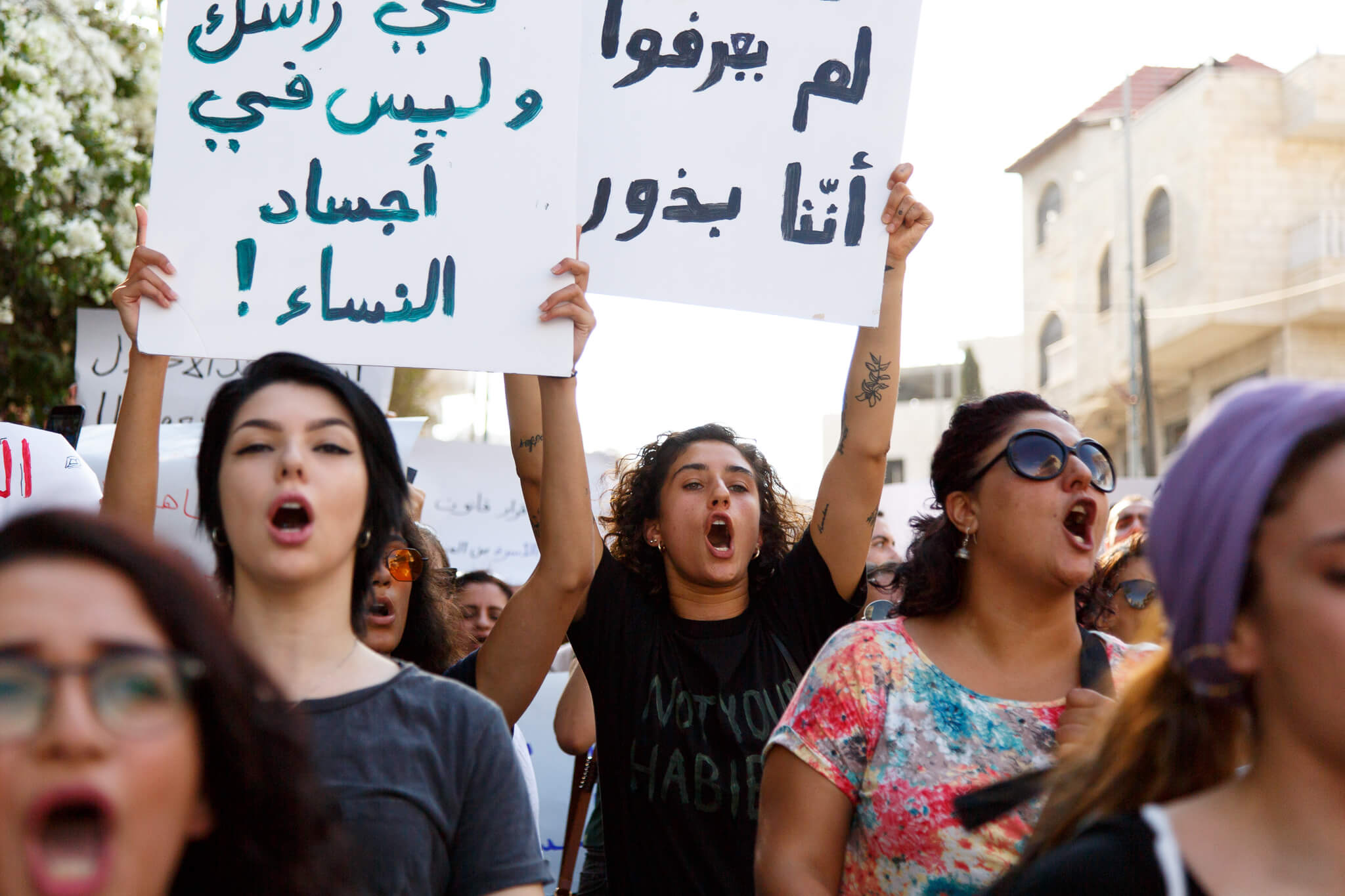
The “honor killing” of a young Palestinian makeup artist in Bethlehem, Israa Ghrayeb, sparked widespread protests across the West Bank, with women expressing their anger not only at the practice of honor killings, but at the inaction of local authorities in pursuing justice for the young woman. Scattered protests across the West Bank soon morphed into the larger #Talat movement, meaning “women rise up,” in Arabic, with thousands of Palestinian women protesting across the West Bank, Jerusalem, Israel, and the diaspora against gender-based violence and discrimination against women in all aspects of society.
US: Settlements no longer illegal
November 18, 2019
In another departure with decades of US foreign policy, US Secretary of State Mike Pompeo announced that the U.S. was softening its position on Israel’s illegal settlements in the occupied Palestinian territory, saying it was revoking the notion that settlements are illegal under international law — a notion recognized by the rest of the world as factual and true. While the long term effects of the US decision remain to be seen, the Israeli right celebrated the move, and immediately announced new settlement plans in the heart of the flashpoint city of Hebron. According to settlement watchdog Peace Now, the average number of settlement housing units approved in the three years since President Trump was elected has gone up to 6,899 housing units, almost twice the average in the three years preceding them (3,635 housing units).
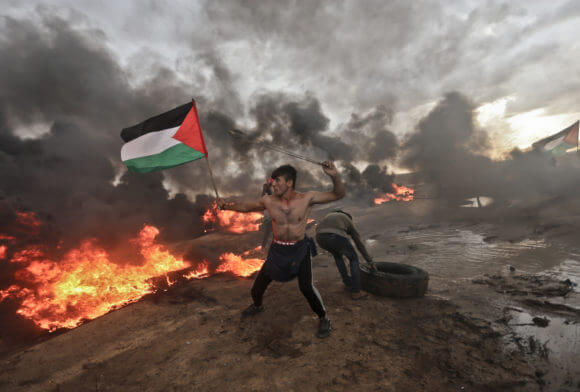
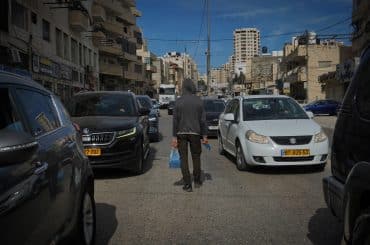

And here’s some breaking news we can add to the list of moments:
“A UN panel dedicated to fighting racism has decided to review Palestinian complaints that Israel’s policies in the West Bank amount to apartheid, despite the global body’s legal adviser having previously said it doesn’t have the authority to deal with the matter, Channel 13 news reported Monday.”
https://www.timesofisrael.com/report-un-anti-racism-panel-to-probe-claims-of-israeli-apartheid-in-west-bank/
https://www.axios.com/israel-palestine-west-bank-apartheid-un-committee-205646eb-b9c1-42c4-9dbb-7cd2f1a2d6a1.html
Another “day in the life” of native Palestinians brutally occupied and oppressed by Zionist Jews:
https://www.aljazeera.com/news/2019/12/prominent-palestinian-writer-dozens-arrested-israel-191224092623188.html
“Prominent Palestinian writer among dozens arrested by Israel In fresh wave of arrests, Israel detains Ahmad Qatamesh and 31 others, including university students.” Al Jazeera, Dec. 24/19
“Israeli forces detained a prominent Palestinian writer during a raid on his home in the occupied West Bank on Tuesday, according to residents.
“Soldiers raided Ahmad Qatamesh’s house in the city of al-Bireh and took him into custody, the residents said.
“Israeli forces detained a prominent Palestinian writer during a raid on his home in the occupied West Bank on Tuesday, according to residents.
“Soldiers raided Ahmad Qatamesh’s house in the city of al-Bireh and took him into custody, the residents said.
“Palestinian news agency Wafa said that at least 31 other Palestinians, including university students, were arrested throughout the occupied West Bank on Tuesday, as well as from the village of Issawiya in occupied East Jerusalem.
“According to Palestinian figures, roughly 5,700 Palestinians, including women and children, are currently in Israeli detention facilities.”
Although one cannot pinpoint a particular event that epitomizes this situation: one factor that did not make this list but should be noted: the lack of any election either in Gaza or on the West Bank through the entirety of the decade meant that Hamas and Fatah representation/leadership of those populations could no longer be described as a democratic choice but instead should be described as something that has ossified.
“the lack of any election”
for the executioners recruited as Zionist puppets with American taxpayer money! Election! Come vote for your favorite Zionist–appointed torturers!
Some “democracy” our Reb Friedman is about, eh!
The PA will hang together with Firedman’s buddies who are running the Zionist entity. That’s why the puppets are so keen on protecting their masters from the Palestinian people.
Sorry, it’s not “Friedman”, the man of peace. It’s Fredman, the man of Fred. My apologies for the mistake.
If they could, I have no doubt that the six million Jews the Nazis slaughtered would scream from their graves in extreme anger and disgust at the fascistic, racist, murdering Zionists of foreign origin who created a vicious, monstrous, expansionist “state” in historic Palestine and have inflicted escalating, barbaric crimes against the essentially defenseless indigenous Palestinian Arabs who including their ancestors, have lived there continuously for at least 15,000 years. While more and more Jews are comprehending the horrendous crimes commited in their name and supporting the Palestinians, worldwide Jewry as a whole better wake up and rid themselves of these Zionist thugs. If they don’t, in the long run, it will not end well for them.